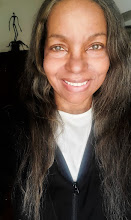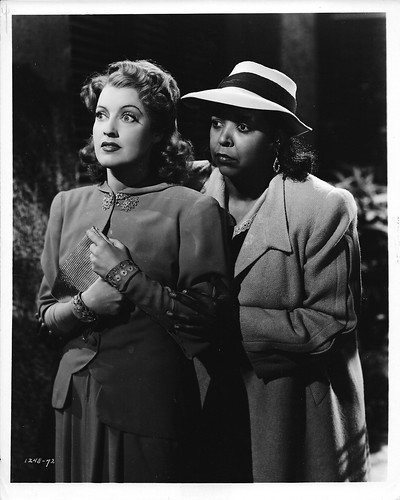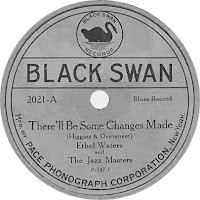Autrilla Scott, like Rosa Parks, protested Jim Crow laws and fought for civil rights through education, and social and political activism.
 |
| Autrilla Scott (left) & Sunny Nash |
Autrilla Scott, like Rosa Parks, protested Jim Crow laws and fought for civil rights to change the world around her and to keep hope alive.
I will miss Autrilla. She was a lovely person, a generous person with a goal to help other people. She, like Rosa Parks, lived through the era of Jim Crows laws and did not allow those racial restrictions to prevent her from living a satisfying life. In fact, like Rosa Parks, Autrilla Scott made great contributions in the city of Long Beach, California, toward removing barriers from the employment of both women and African Americans. "There was a Civil Rights Movement in California," Autrilla told me. "And I guess, I was a part of it."
Autrilla Scott is among those in BREAKING THROUGH Lighting the Way, a book of historical profiles about women who made a difference in the history of Long Beach, California, The Foreword was written by Carolyn Smith Watts, who developed the concept for the project when she assembled the group for a photograph that was later displayed at an exhibition in the main gallery of the Historical Society of Long Beach.
These civil rights pioneers were part of the Civil Rights Movement in Long Beach, a movement with which few outside of the area are familiar.
In fact, most people do not associate California with the struggle for civil rights because Civil Rights Movement efforts were concentrated in the Deep South, where Jim Crow laws were entrenched and had prevailed for centuries.
For some time, California had remained outside the range of race riots, until the San Francisco riot in 1966 and the Watts Riots in 1965, the year that one of these women, Bobbie Smith, arrived in Los Angeles for her new job and found the city on fire. Later she was the first black woman in Long Beach to hold a public office, when she was elected to the Long Beach United School District. I had the opportunity to sit down and talk with these remarkable women about five years ago.
BREAKING THROUGH Lighting the Way
For some time, California had remained outside the range of race riots, until the San Francisco riot in 1966 and the Watts Riots in 1965, the year that one of these women, Bobbie Smith, arrived in Los Angeles for her new job and found the city on fire. Later she was the first black woman in Long Beach to hold a public office, when she was elected to the Long Beach United School District. I had the opportunity to sit down and talk with these remarkable women about five years ago.
Like Rosa Parks, Autrilla Scott and the other women of BREAKING THROUGH Lighting the Way broke ground in civil rights and the destruction of Jim Crow laws.
 |
| Rosa Parks, Montgomery Bus Boycott |
However, long before the Watts Riots, California, which also had a smattering of Jim Crow laws on its books, but had an abundance of racial intolerance. Autrilla told me about times that she was discriminated against in receiving services. Those types of issues could only be addressed through the Civil Rights Movement, initiated by people like Autrilla Scott, Rosa Parks, the Montgomery Bus Boycott, Martin Luther King and other individuals and events in the Deep South.
The women in BREAKING THROUGH Lighting the Way are some of the first black women to hold certain corporate, governmental, political and business positions. For example, among them are the first black U.S. Chief Warfinger, the first black woman to chair a U.S. Defense Advisory Committee and the first black female Long Beach Vice Mayor.
 |
| Martin Luther King Montgomery Bus Boycott |
One of these women marched with Dr. Martin Luther King, Jr., from Selma to Montgomery, Alabama. One of the women in this study, a clerk at the Tuskegee Airman School, became a nationally known historian of Tuskegee Airman History, collected by the University of California.
Like Rosa Parks and Martin Luther King, Autrilla Scott struggled against Jim Crow laws and fought for civil rights
Autrilla Scott was born in the cotton town of Hope, Arkansas, in 1930, the youngest of seven children. This was the height of the depression and Jim Crow laws, making opportunities scarce for everyone and particularly for African American females like Autrilla's. However, her family's economic struggle did not match the hardships and desperation of most of their southern black and white contemporaries. "My father was in the importing and exporting business," Autrilla told me. "Using his wagon, my father picked up goods from other parts of the country that the trains brought to Hope and then he delivered them to local stores. It was a good living, but as black people, we faced the same discrimination as other black families in the community and across the South."
Autrilla's father died when she was nine years old, leaving the family without primary support, forcing her mother to become head of the family and, for the first time, working outside the home. Autrilla's siblings, too, then joined the ranks of their impoverished neighbors. "My mother also took in washing and ironing for other people to take care of us," Autrilla said. "She worked very hard to help us go to school. Our education was important to her. When I was in in teens, and in high school, I cleaned houses and babysat to help my mother pay the bills, but she insisted I stay in school and finish."
"When I was a young woman, the only way out of poverty," Autrilla told me, "Was through education and hard work. That's how people can keep hope alive, even today."
 |
| Autrilla Scott Believed in Education |
| How to Be a High School Superstar: A Revolutionary Plan to Get Into Co (Google Affiliate Ad) |
| Fighting the Good Fight: The Story of the Dexter Avenue King Memorial (Google Affiliate Ad) |
As a teenager, Autrilla Scott babysat Bill Clinton before he was William Jefferson Clinton.
 |
| Toddler Bill Clinton |
During my interview with her, Autrilla told me how she met the man who would grow up to become the 42nd President of the United States, William Jefferson Clinton.
Autrilla babysat the future president many times after their first meeting. "He was a good little boy," she said. "And I didn't mind taking care of him. He was polite and very smart. I knew even when he was quite young he would do something important with his life, but I have to admit I didn't know he would become President of the United States."
 |
| Bill Clinton & Autrilla Scott |
After she graduated from high school, Autrilla married Olen Scott and, in 1950, moved to California. She was 20 years old. The couple had two children and five grandchildren. "I found discrimination here in California," Autrilla said. "I knew that discrimination was present in places other than the South, but I didn't expect racism to be as widespread as it was here in California."
Autrilla moved to California five years before Rosa Parks ignited the Montgomery Bus Boycott and less than a year later moved with her husband, Raymond Parks, to Detroit, where they found racism and discrimination in housing, employment and education. Autrilla Scott like Rosa Parks, was dismayed by racial conditions in her new home. Both women went to work trying to improve those conditions and continued to work toward improvement of U.S. race relations throughout their lives and, even as older women, did not give up the fight. And in death, their fight lives on.
Another thing I loved about Autrilla was that she never thought a person was too old to learn or to start all over again. After retiring from her career as a nurse, she went back to school and learned to write, with emphasis in poetry, essay and short fiction. She entered her work into competitions; had reading events; appeared at book festivals; and challenged younger writers to work as hard at their craft as she did. In 2008, I was at the Leimert Book Festival in Los Angeles. Guess who was also there under the tent with her own book--83-year-old Autrilla Scott, holding court among all those young writers and dishing out welcomed advice to people more than half a century younger than her. I loved that woman!
In her two memoirs, I Remember When: A Town Named Hope, Arkansas, and Stories from the Past, Autrilla reminisces about Bill Clinton's childhood, her own childhood, her life in times past, education, her pursuit of accomplishment in her later years and her civil rights and civic activism.
| I Remember When: A Town Named Hope, Arkansas |
| Stories from the Past |
"Growing up in Hope, Arkansas, was an experience that compares to nothing else I have ever done in my life," Autrilla said. "It laid the foundation for who I am today and taught me many valuable lessons about family, live, love, and faith."
A student of the late poet Manazor Gamboa of Homeland Cultural Center, Autrilla has poetry published in the Homeland Neighborhood Cultural Center Books of Poetry, Silver Pearls; The International Library of Poetry; and The National Library of Poetry; read poetry for Press-Telegram columnist Tom Hennessy's Poetry Fest; and held readings at Long Beach Museum of Art.
Autrilla Scott and Rosa Parks provided an example to others and certainly made a difference to the lives of oppressed people in the United States. Autrilla became a community activist and was the first Long Beach African American to have a street named for her honor.
Autrilla was a civil rights pioneer in Long Beach and an activist who fought Jim Crow laws in the southern United States as well as Southern California, a social and political activist who did not mind taking her battle to the streets, and an artist who wrote to inspire.
Autrilla Scott & A Place Called Hope
| Autrilla Scott Lane |
Autrilla was a civil rights pioneer in Long Beach and an activist who fought Jim Crow laws in the southern United States as well as Southern California, a social and political activist who did not mind taking her battle to the streets, and an artist who wrote to inspire.
| Long Beach, California Lbc Euro Oval Sticker (Google Affiliate Ad) |
By Putting together this tribute to Autrilla Scott, I hope that others can see her example of how to leave a legacy. Although many people do not possess the courage or the persistence to see a job through and get it done right like Autrilla, maybe you can find some small contribution to make in your life to make a difference in someone else's. Autrilla Scott made a difference in my life. Thank you for letting me share her with you.
Long Beach and I will miss you, Autrilla. It is an honor to have known you.

| ||
| Bigmama Didn't Shop At Woolworth's by Sunny Nash |
Sunny Nash—leading author on U.S. race relations—writes on U.S. history and contemporary American topics, ranging from Jim Crow laws to social media networking, using her book, Bigmama Didn't Shop At Woolworth's, chosen by the Association of American University Presses for understanding of U.S. race relations.
When I wrote my book, Bigmama Didn't Shop At Woolworth's, there was no FaceBook, which requires precautions against political correctness. because communications one key stroke away from insulting someone.
Communications have changed and are light years ahead of the tools I used writing my book and columns on a personal computer. I had no idea how easy it would become to inflict political incorrectness.
Also join me on Huffington Post for my comments and discussions on civil rights, race relations, politics, style, entertainment and other pressing issues of the day.
When I wrote my book, Bigmama Didn't Shop At Woolworth's, there was no FaceBook, which requires precautions against political correctness. because communications one key stroke away from insulting someone.
Join Sunny Nash
|

















